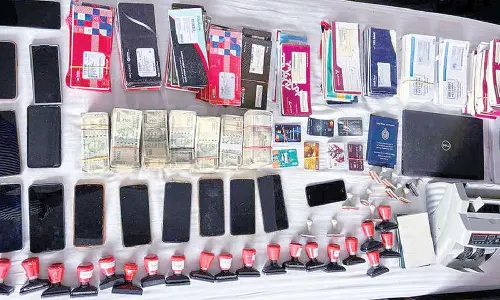Coronavirus: Re-modelling of justice delivery system need of the hour

Coronavirus: Re-modelling of justice delivery system need of the hour (Representation image)
During the present Covid-19 pandemic, what we used to live life before March 20, has turned topsy-turvy
During the present Covid-19 pandemic, what we used to live life before March 20, has turned topsy-turvy. There has been a sea change all over the world from all walks of life. The meanings and contexts of everything concerning our present and future have changed radically. The legal system, judiciary at large and approach to the litigation resolution too needs to have a re-look. In fact, the Covid-19 pandemic has offered us an opportunity to re-model our entire justice delivery system. It is a blessing in disguise.
As is well known, the bane of our legal system is the procedural jungle, unpardonable delays, rampant corruption and indifference towards litigants. These elements have shaken the confidence of a common man in our judicial system. The common man feels that he has been taken for a ride quite often by the insensible judicial system as a result of which he alone stands to lose.
Fortunately, the Supreme Court and the government have taken a serious note of these drawbacks of our justice delivery system and have initiated some positive remedial measures. Going digital, whereby the filing of papers online and addressing the Court through video conference is just a beginning towards the much-needed reforms. Though there have been some teething troubles such as frequent disruption of internet connection, failure of power supply and poor quality of audio and video, this new beginning needs to be welcomed by one and all.
The virtual court offers tremendous ease of doing work to both the judges and the lawyers. It also facilitates the court to keep the record in digital form which can be called for by the appellate court in case of any dispute or clarification from the lower court. The virtual court also results in drastically cutting down the establishment expenses and the amount saved could be utilised for improving the quality of justice administration.
What all is needs is the high-speed internet connections at the ends of the concerned judges and the advocates. There could be further improvement in the procedure whereby within prescribed time limits the parties at dispute may be asked to file counters, responses, written arguments, etc.
Even at present, such time limits have been prescribed under certain statutes like the commercial courts. Similarly, the maximum time for advancing oral arguments should also be prescribed so that the number of disposal of cases can increase. Training classes for judges at all levels, para-legal staff and advocates should be arranged on a regular basis. History proves that the world has on several occasions risen like a phoenix and this time too, post Covid-19 pandemic it would rise once again from the ashes.









